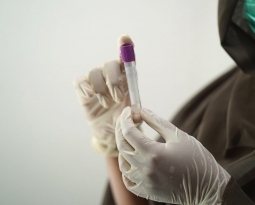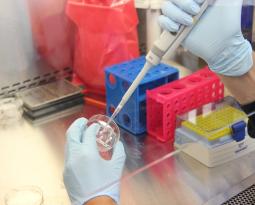Wyoming Patent of the Month – April 2023
Electrolytic cells play a crucial role in keeping cooling water systems in industrial plants and power stations free from growth that could impede water flow, resulting in equipment breakdowns. Sodium hypochlorite generators, which receive a supply of salty water, produce hypochlorite to keep the water system clean. However, such generators can become inefficient due to calcium and magnesium deposits on the cathode, resulting in periodic cleaning that can disrupt operations. To solve this problem, Electrichlor LLC has developed an improved electrolytic cell that overcomes these limitations.
Previous hypochlorite generators were designed for large-scale applications that limited the environments in which they could be installed. After extensive research. Electrichlor determined that smaller-scale applications with lower output and flow rate requirements could offer a solution, particularly in volumetrically constrained systems. For example, the volume of water that can be treated is constrained in ballast tanks in ships to prevent the growth and transportation of marine organisms.
Electrichlor’s electrolytic cells comprise a plurality of cells that employ a series of increasing diameter annular channels defined by concentric tubes. The cells are small in size and can be installed in numerous environments. Moreover, the cells can generate a higher concentration of hypochlorite for a given volume of water passed through the generator, maximizing the efficiency of the electrolytic cells.
Electrichlor was founded in August 2001 and has grown over the past few decades, reincorporating from Electrichlor Hypochlorite Generators Incorporated to Electrichlor, LLC, restructuring their focus on Research and Development. Since then, the company has quickly become known for their high-efficiency hypochlorite generators which capitalize on the patented electrolytic cell technology.
Are you developing new technology for an existing application? Did you know your development work could be eligible for the R&D Tax Credit and you can receive up to 14% back on your expenses? Even if your development isn’t successful your work may still qualify for R&D credits (i.e. you don’t need to have a patent to qualify). To find out more, please contact a Swanson Reed R&D Specialist today or check out our free online eligibility test.
Who We Are:
Swanson Reed is one of the U.S.’ largest Specialist R&D tax advisory firms. We manage all facets of the R&D tax credit program, from claim preparation and audit compliance to claim disputes.
Swanson Reed regularly hosts free webinars and provides free IRS CE and CPE credits for CPAs. For more information please visit us at www.swansonreed.com/webinars or contact your usual Swanson Reed representative.

















